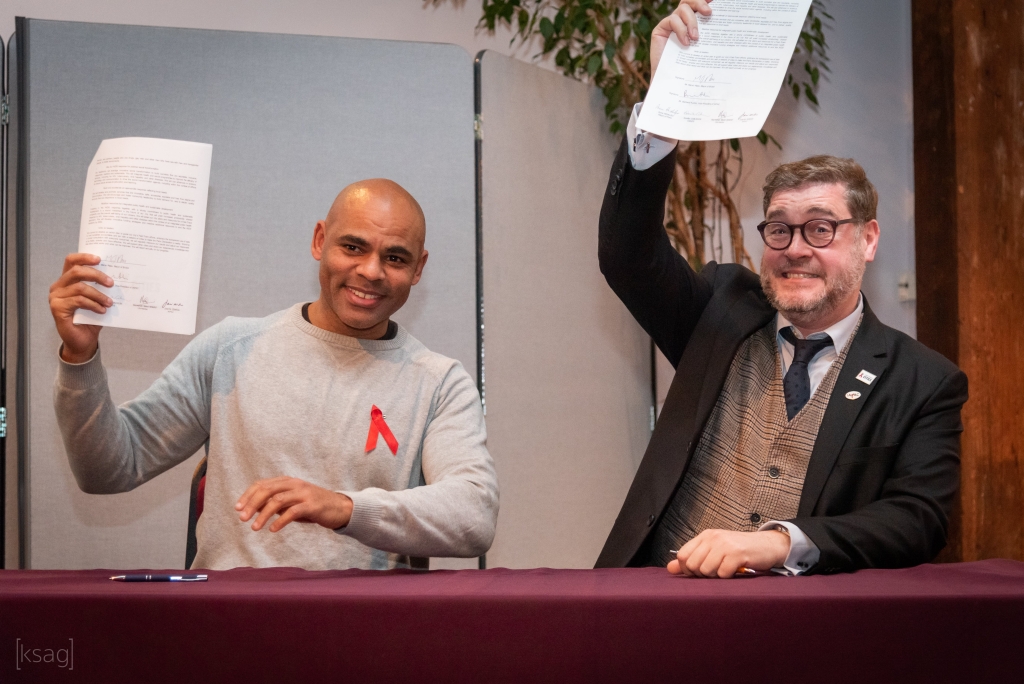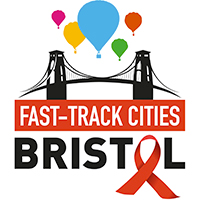
about
us
about us
The Fast-Track Cities Initiative in Bristol is guided by a Steering Group which oversees delivery of three workstreams and the Bristol Fast Track City Action Plan.
The Bristol Fast-Track Cities Steering Group aims to raise the profile of HIV, guide local HIV research, and improve the quality of life for people living with HIV. It is chaired by Dr Jo Copping and involves partners working in the HIV sector and with a passionate commitment to the goals for Bristol. These include people living with HIV, the voluntary and community sector, academics, clinicians, public health professionals and councillors.
We are part of the global network of Fast-Track Cities and also of the UK and Ireland Fast-Track Cities Group.
Stopping HIV
- End new HIV infections in the city.
- End HIV-related stigma and discrimination: Zero Stigma
- End preventable deaths from HIV-related causes.
- Work to improve the health, quality of life and well-being of people living with HIV in their city.
The priorities for the Bristol Fast-Track Cities Steering Group for 2025/2026 are to:
- Raise the profile of HIV locally within the Integrated Care System and with regional partners.
- Address race inequalities within HIV, with a focus on migrant communities.
- Improve the quality of life for those living with HIV.
meet the team
Powered by our people
Chair of Fast Track Cities Bristol
Co-Chair of Work Stream 2 – Tackling Stigma
Co-Chair of Work Stream 2, Tackling Stigma.
Bristol is
currently achieving
You Ask, We Answer
Bristol has around 1,000 people living with HIV. The diagnosed HIV prevalence is 2.4 per 1,000 population aged 15-59, which means that 2.4 in every 1000 people aged 15-59 have been diagnosed with HIV. As a result, Bristol is an area of high HIV prevalence (above 2.0 per 1,000). Black African people are disproportionately affected by HIV in Bristol.
Approximately 38 new cases of HIV are recorded in Bristol every year. Furthermore between 2021 and 2023, 61.4% of HIV diagnoses in Bristol were made at a late stage of infection, compared to 43.5% in England overall. Individuals diagnosed at a late stage of infection have poorer treatment health outcomes and there is increased risk of onward HIV transmission.
For further information:
- Bristol, North Somerset and South Gloucestershire Sexual Health Needs Assessment 2022
- Shorter update for 2023
- Regularly updated local HIV data is available in the Bristol Joint Strategic Needs Assessment Data Profile
The HIV/AIDS global epidemic remains one of the most important public health crises faced in modern times. Although the disease can now be effectively controlled by antiretroviral therapies, that doesn’t mean the fight is over.
For too many people in Bristol being HIV positive remains a condition that attracts stigma and prejudice that has negative consequences across every aspect of daily life. Ending this stigma requires tackling public misperceptions about HIV status across Bristol.
Late diagnosis is still too prevalent among those infected with HIV. We need to ensure that HIV testing is promoted and available at every level of the health service. Preventing late diagnosis also means working alongside communities in Bristol to better understand how to improve testing.
Effective treatments with anti-retroviral therapies are thankfully extending the lives of people living with HIV, but with this comes new challenges as those living with HIV age.
Support and governance
The Sexual Health Improvement Programme Health Integration Team (SHIP HIT) host and provide support to the delivery of the Bristol Fast Track City initiative, and report to Bristol Health Partners.
The four core partners supporting Fast Track Cities globally are the International Association of Providers of AIDS Care (IAPAC), UNAIDS, UN-Habitat and the City of Paris.
Funding
Bristol Fast Track Cities has no formal or recurrent funding, however Brigstowe receive a small amount of funding from Bristol City Council (via the Public Health Grant) to support delivery of the work towards ending stigma, and the SHIP HIT has funded some small elements of the FTC programme and action plan.
